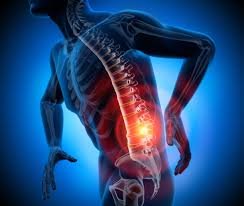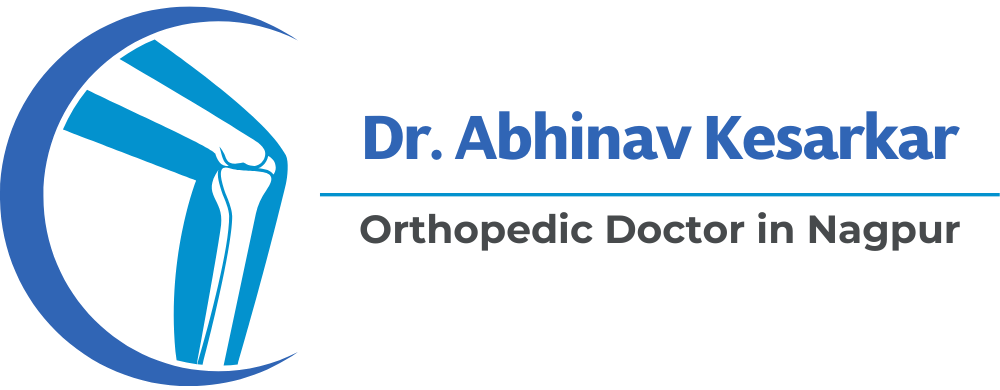Dr. Abhinav Kesarkar | Orthopedic Surgeon In Nagpur
Slipped disc surgery specialist in Harda

Slipped disc surgery specialist in Harda – Kesarkar Hospital
Living with chronic back pain, stiffness, or radiating leg pain can drastically affect your quality of life. For many individuals in Harda and nearby regions, these symptoms often indicate a slipped disc (herniated disc) — a spinal condition that requires timely and specialized care. Fortunately, you can find expert help with Dr. Abhinav Kesarkar, a renowned Slipped Disc Surgery Specialist in Harda, who is widely known for his precision, experience, and patient-centered approach.
Moreover, a slipped disc, if left untreated, can lead to nerve compression, limited mobility, and long-term discomfort. However, with advanced diagnostics and modern treatment options, recovery is now faster and more effective than ever.
Dr. Kesarkar, a trusted Orthopedic and Spine Surgery Specialist in Harda, offers world-class slipped disc treatment using minimally invasive techniques, modern technology, and personalized rehabilitation plans. As a result, patients experience quicker relief, better spine health, and a confident return to a pain-free, active lifestyle.
What Is a Slipped Disc?
Your spine is made up of a column of bones called vertebrae, which are cushioned by soft, jelly-like discs that act as natural shock absorbers. These discs not only support smooth movement but also provide flexibility and stability to the entire back. However, when the inner gel-like portion of a disc (nucleus pulposus) bulges or ruptures through its outer layer (annulus fibrosus), it can press against nearby spinal nerves, causing discomfort.
This condition, known as a slipped or herniated disc, may occur in the neck (cervical spine), mid-back (thoracic spine), or lower back (lumbar spine). Among these, the lumbar region is most commonly affected because it bears the majority of the body’s weight. Furthermore, lifestyle factors such as poor posture, heavy lifting, or prolonged sitting can increase the risk of disc damage.
Over time, constant nerve compression can lead to pain, numbness, tingling, or weakness in different parts of the body. As a result, everyday movements like walking, bending, or even sitting may become increasingly difficult. Therefore, early diagnosis and timely treatment are essential to prevent long-term nerve damage and restore full mobility.
Common Symptoms of a Slipped Disc
Recognizing the early signs of a slipped disc is extremely important because timely intervention can prevent permanent nerve damage and long-term discomfort. Moreover, early diagnosis helps in planning the right treatment and avoiding complications. Some of the most common symptoms include:
Persistent lower back pain or stiffness, especially after sitting or bending for long periods
Pain radiating to the buttocks, thighs, or legs (commonly known as sciatica)
Numbness or tingling sensations in the hands, arms, or feet
Weakness in muscles, making it difficult to lift or hold objects
Pain that worsens with coughing, sneezing, or sudden movements
Reduced mobility or difficulty maintaining proper posture
In severe cases, loss of bladder or bowel control, which requires immediate medical attention
Furthermore, this condition—called a slipped disc or herniated disc—can occur in the neck (cervical spine), mid-back (thoracic spine), or lower back (lumbar spine). Among these, the lumbar region is the most commonly affected area since it bears most of the body’s weight.
Over time, constant pressure on spinal nerves can lead to pain, numbness, tingling, or weakness in different parts of the body. Consequently, the specific symptoms vary depending on which nerve roots are compressed and how severe the herniation is. Therefore, seeking early evaluation from an orthopedic or spine specialist like Dr. Abhinav Kesarkar is essential for effective management and faster recovery.
Causes and Risk Factors
A slipped disc can occur due to several reasons; understanding these causes is essential for both prevention and effective management. Moreover, knowing the triggers helps patients adopt lifestyle changes that protect spinal health.
Common Causes Include:
Age-related wear and tear (degenerative disc disease), which gradually weakens spinal discs.
Poor posture or prolonged sitting, especially during desk work, which increases spinal pressure.
Heavy lifting or sudden twisting motions, often leading to disc strain or injury.
Obesity, as excess weight places additional stress on the lower back.
Lack of physical activity and weak core muscles, reducing spinal support and flexibility.
Injury or trauma to the spine, which can cause discs to shift or rupture.
Smoking, which decreases disc hydration and accelerates degeneration.
Although anyone can develop a slipped disc, the condition is more common among adults aged 30–50 years. Furthermore, individuals with sedentary jobs or physically demanding occupations face a higher risk. Therefore, maintaining good posture, regular exercise, and healthy body weight can significantly reduce the likelihood of this painful condition.
Advanced Diagnosis and Evaluation
At his Orthopedic and Spine Clinic in Harda, Dr. Abhinav Kesarkar follows a meticulous and step-by-step diagnostic approach to identify the exact cause of back or neck pain. Moreover, he focuses on understanding each patient’s symptoms, lifestyle, and medical history to ensure precise evaluation.
The diagnostic process includes:
Physical examination, which helps assess nerve function, reflexes, and overall mobility.
MRI or CT scans for detailed spinal imaging and structural assessment.
X-rays, which are used to rule out bone abnormalities or alignment issues.
Neurological tests to evaluate nerve compression and sensory function.
Furthermore, this comprehensive evaluation ensures an accurate diagnosis and enables Dr. Kesarkar to recommend the most effective, personalized, and safe treatment plan for every patient. As a result, individuals receive targeted care that promotes long-term relief and improved spine health.
Non-Surgical Treatment Options
Not all cases of slipped disc require surgery. In fact, for mild to moderate conditions, Dr. Abhinav Kesarkar emphasizes conservative treatment methods that not only relieve pain but also restore spinal function and flexibility. Moreover, these non-invasive approaches aim to address the root cause and prevent recurrence.
These include:
Medications: Anti-inflammatory drugs, pain relievers, and muscle relaxants help control pain and reduce swelling.
Physiotherapy: Targeted exercises strengthen the back muscles, improve posture, and support spinal stability.
Lifestyle Modifications: Weight management, ergonomic adjustments, and posture correction further enhance recovery and prevent strain.
Injections: Epidural steroid or PRP (Platelet-Rich Plasma) injections effectively reduce inflammation and promote natural healing.
Heat & Cold Therapy: Alternating heat and cold treatments relieve muscle spasms, decrease stiffness, and improve blood flow.
Furthermore, with consistent therapy and proper medical guidance, many patients experience remarkable improvement without needing surgery. As a result, they return to their normal activities with less pain and greater confidence. However, if symptoms persist for several months or progressively worsen, surgical options may be considered for long-term relief.
Surgical Options for Slipped Disc
When non-surgical treatments fail to provide relief, Dr. Abhinav Kesarkar offers advanced minimally invasive spine surgeries designed for faster recovery, minimal blood loss, and reduced scarring.
🧩 Common Surgical Procedures:
Microdiscectomy:
A minimally invasive surgery that removes the herniated portion of the disc to relieve pressure on the affected nerve root.Endoscopic Discectomy:
A highly precise procedure performed through a tiny incision using an endoscope and camera for enhanced visualization.Laminectomy:
Removal of a small part of the bone (lamina) to relieve pressure on the spinal cord and nerves.Spinal Fusion (if required):
Stabilizes the spine in cases where multiple discs are affected or spinal instability exists.
Why Patients in Harda Trust Dr. Abhinav Kesarkar
Dr. Abhinav Kesarkar is known for his ethical approach, surgical precision, and patient-centered care. His reputation as a trusted spine surgeon in Harda has made his clinic a preferred destination for patients across Madhya Pradesh.
✅ Key Highlights:
🩻 Expertise in Minimally Invasive Spine Surgeries
🧘♂️ Focus on Pain-Free and Faster Recovery
💬 Detailed Pre- and Post-Surgery Counseling
👩⚕️ Dedicated Physiotherapy & Rehabilitation Team
🏥 Use of Modern Operating Equipment & Imaging Technology
🤝 Continuous Follow-up and Recovery Monitoring
Dr. Kesarkar believes that every patient deserves personalized attention, and therefore, every treatment plan is customized based on age, lifestyle, and health conditions.
Life After Slipped Disc Surgery
Recovery after slipped disc surgery is usually quick and rewarding. Most patients can walk within 24 hours after minimally invasive surgery and resume light activities within a few days.
Dr. Kesarkar’s post-operative rehabilitation includes:
Physiotherapy sessions to restore flexibility
Core strengthening exercises
Lifestyle and ergonomic advice
Regular follow-up consultations to ensure long-term results
With proper care, patients can return to work and normal routines within 3–6 weeks, depending on the procedure performed.
Book your appointment with Dr. Kesarkar
Regain your pain-free life and active mobility today. Book your appointment with Dr. Kesarkar, Best Hip Replacement Doctor in Nagpur, for expert consultation and advanced treatment options.Contact Now

